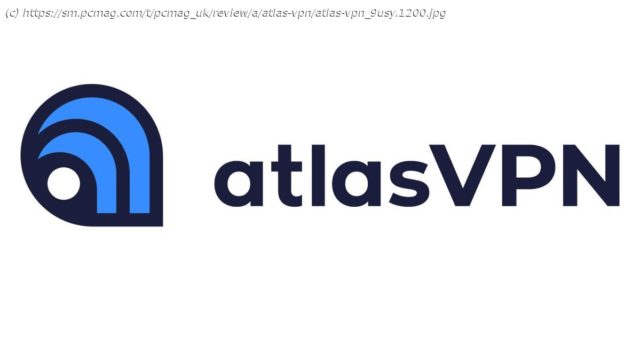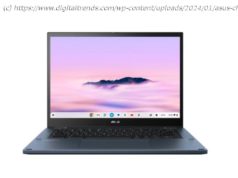A strong freemium VPN in need of polish
Atlas VPN offers a decent set of privacy features and basic VPN functionality that, on paper, is comparable to the best VPNs on the market. Unlimited simultaneous connections for paying users and a high data cap for free users make it especially attractive. Some design quirks and unusual behavior in hands-on testing marred our experience, though, and we’d prefer the company undergo a third-party audit of its policies and infrastructure. Atlas is owned by the parent company of Editors’ Choice winner NordVPN. Our top-rated VPN is Proton VPN, which offers a bunch of tools at a reasonable price. How Much Does Atlas VPN Cost?
Atlas VPN costs $10.99 per month, over a dollar more than the $9.93 average we’ve seen across the VPNs we’ve reviewed. Several excellent VPNs offer prices far below the average: Editors’ Choice winner Mullvad VPN, for instance, costs just 5 euros per month ($5.57 as of this writing).
Nearly all VPNs offer steep discounts if you sign up for long-term subscriptions. Atlas VPN’s price drops to $27.40 for the first year of an annual subscription and $71.49 for three years. Both the annual and three-year subscriptions automatically renew at $47.83 per year once the initial term ends. Extra discounts with a price increase are common in the antivirus world and are becoming more common among VPNs. We find the practice confusing and believe most consumers would not expect the price hike. Ivacy VPN and Kaspersky Secure Connection have the cheapest annual plans we’ve seen, at just $29.99 per year.
While you will save money on a long-term subscription, we advise against starting out with one. Instead, sign up for the shortest subscription available so you can test the VPN in your own home. Extra money upfront is better than being stuck with a disappointing product for a year or more.
Atlas VPN is one of the very few VPNs to offer a full-fledged free subscription. Free subscribers have unlimited bandwidth and access to three VPN server locations—Amsterdam, Los Angeles, and New York—and are allotted two simultaneous connections. Atlas VPN recently adjusted the data cap placed on its free customers. Now, the company limits all free customers to 5GB of data per month. This greatly simplifies Atlas VPN’s free offering, which had different data caps depending on the platform, but also greatly reduces the amount of data free users can consume. It’s still much more data than Editors’ Choice winner TunnelBear VPN, which caps users at a mere 500MB per month, but less than Hotspot Shield VPN, which caps users at 5GB per day. Editors’ Choice winner Proton VPN is our pick for free VPNs since it places no data limit on its free subscribers and offers affordable pricing tiers.
You can purchase an Atlas VPN subscription with a major credit card, Google Pay, or PayPal. It does not currently support cash or cryptocurrency purchases. Editors’ Choice winners IVPN and Mullvad VPN accept anonymous cash payments sent to their respective HQs and also use a privacy-protecting semi-anonymous account system.What Do You Get For Your Money With Atlas VPN?
The basic function of a VPN is to create an encrypted connection between your machine and a server operated by the VPN company. All your internet traffic passes through the connection to the server and returns to the internet as normal. This ensures your ISP can’t monitor or profit from your online activities. It also makes it harder for advertisers and others to track your movements across the web.
Most VPNs place a limit on the number of devices that can connect to the VPN service at once. Usually, the limit is five devices per account. That’s changing, however. Atlas VPN is among a new class of VPN services that place no restrictions on the number of simultaneous connections, which includes Avira Phantom VPN, IPVanish VPN, Editors’ Choice winner Surfshark VPN, and Windscribe VPN.
(Editors’ note: IPVansih is owned by Ziff Davis, PCMag’s parent company.)
Split tunneling is a convenience feature included by most of the best VPNs. When enabled, it routes the traffic of specific apps outside the VPN’s encrypted connection. It’s handy for high-bandwidth but low-security activities, such as video streaming and gaming. Atlas VPN does include this feature, but only in its Android app.
The best VPN services let users enhance the privacy of their connections with multi-hop connections. This routes your VPN traffic through a second VPN server, making it harder for your traffic to be tracked even if one of the VPN servers is compromised. Atlas VPN does include multi-hop connections, but we found the execution lackluster (as you will see).
Still, others provide access to the free Tor anonymization network via VPN for even more anonymization. Tor is free to use but significantly cuts into internet speeds—especially when a VPN is involved. Editors’ Choice winners NordVPN and ProtonVPN are among the very few VPN companies to offer both of these features.
Many VPNs claim to block ads and trackers, but Atlas VPN is one of the few services that try to show its work. Like Norton Secure VPN, Atlas VPN shows a running tally of the ads and trackers it has blocked. We do not test the efficacy of ad blocking in VPNs.
A subset of Atlas VPN’s servers is called SafeSwap servers. Atlas VPN tells us these have a pool of IP addresses assigned to them, and they cycle through them periodically. The idea is that changing your IP address frequently helps make you harder to track online. We’ve not seen this feature before, the only comparable option being the IP Shuffle option in HMA VPN.
Atlas VPN also includes a Data Breach Monitor. Simply enter an email address, and Atlas VPN will inform you if that address appears in a collection of breached credentials. It’s similar to the popular HaveIBeenPwned site. Free users can track a single address while paying customers can track any number of addresses. A representative for Atlas VPN told us emails used for data breach monitoring are not sent via plaintext and are only used for data breach monitoring and not marketing or sales activity. The company has not released a final list of vendors for its monitoring service.
VPNs are useful privacy tools, but they don’t protect against every threat. We highly recommend using standalone antivirus software to protect your machine, enabling multi-factor authentication wherever it’s available, and using a password manager to create unique and complex passwords for each site and service you use.
What VPN Protocols Does Atlas VPN Support?
VPNs have been around for a long time, and there are several methods for creating a VPN connection. We’ve long preferred OpenVPN, an open-source option that has been picked over for potential vulnerabilities.






